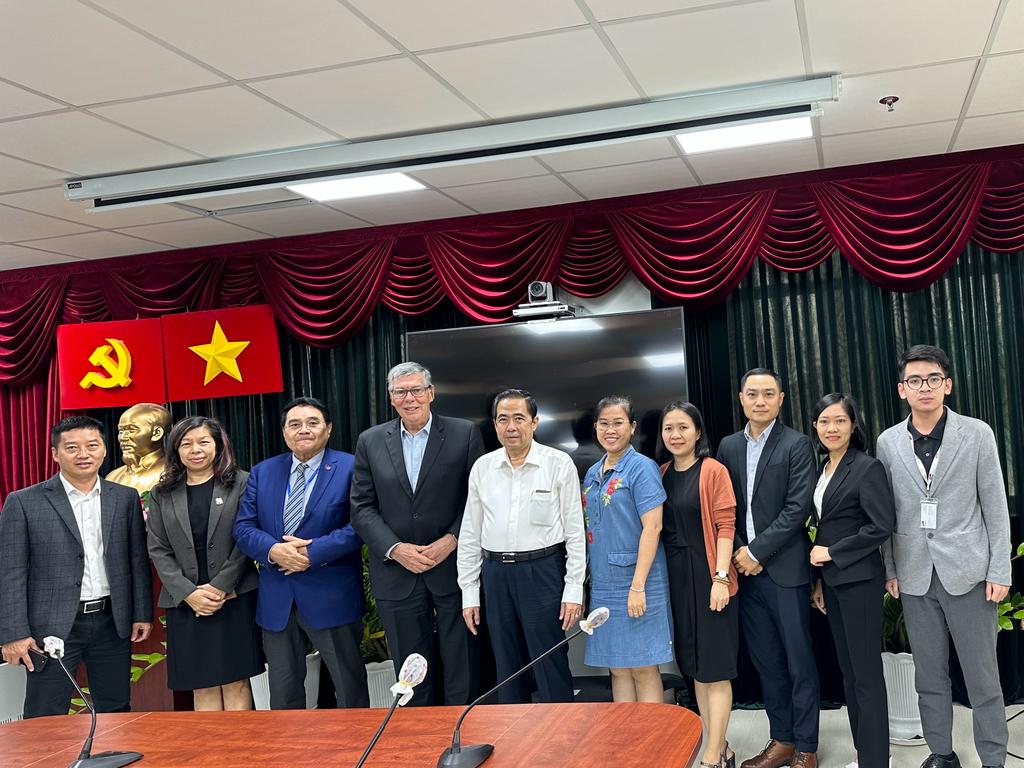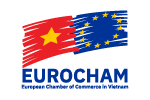On Feb. 20, EuroCham Vietnam held a productive meeting with a delegation of our members and the Department of Labor, Invalids and Social Affairs (DOLISA) in HCMC to discuss the difficulties our members in the city are experiencing with the current work permit process. As the bulk of the difficulties lie in requirements for the “report on foreign labor demand,” a document that foreign workers must submit to apply for work permits, we held this meeting to discuss our members’ concerns regarding the implementation of new requirements for this report. The meeting aimed to create favorable conditions for qualified foreign experts to share their knowledge and experience with local employees while respecting local laws.

EuroCham Outlines Recent Changes to Work Permit Process for Foreign Workers
EuroCham outlined recent changes that place increased burdens on employers in recruiting foreign expats and extend beyond the scope of Decree No. 152/2020/ND-CP, including:
- For most cases, Form No. 1/PLI has been replaced with Form No. 02/PLI
- Additional documents required to be attached to the forms, including a recruitment plan, a public recruitment advertisement, and a plan for training Vietnamese workers to replace the foreign worker
DOLISA Acknowledges Difficulties and Responds to Concerns
DOLISA acknowledged the difficulties our members face and responded by stating that other localities, including Hanoi, have also changed the form. They said that the Employment Authority of the Ministry of Labor, Invalids and Social Affairs (MOLISA) instructed DOLISA to make these changes in late-2022.
In addition, EuroCham noted that Form No. 02/PLI requires enterprises to submit previous DOLISA approvals, so EuroCham requested that DOLISA exempt companies from submitting previous approvals, since DOLISA has these records in their system and some companies may unintentionally lose these records. According to DOLISA, while they may be able to help check their records of prior approvals, enterprises must still submit their prior approvals in accordance with legal requirements.
DOLISA confirmed that, in relation to the three additional documents required to be attached to the report form, enterprises will no longer have to submit these documents. Instead, enterprises must only state on the relevant forms (i.e., Form No. 01/PLI or Form No. 02/PLI) why Vietnamese employees cannot be hired for the relevant position. DOLISA, however, asks enterprises to provide their own reasons, rather than reusing those of other companies, as they said occurs frequently due to the work of work permit service agents.
Further, DOLISA said it would normally accept an explanation containing the following content:
- The position’s qualification, experience, and skill set requirements
- An assessment by the employer that Vietnamese employees lack the required qualifications.
- A plan to train Vietnamese workers to replace the foreign workers’ positions. According to them, this plan is crucial if enterprises hire foreign experts for long periods.
The report should also include specific criteria and conditions. Rather than using vague conditions such as “at least 5 years of experience,” enterprises should specify specific years of experience, such as 10 years.
In terms of other documents attached to the work permit application, DOLISA could not exempt any documents required by law.
According to DOLISA, its recently launched online application portal remains a challenge for enterprises and DOLISA officials, so the agency has committed to working with other authorities to streamline its application process. A budget for digitizing work permit applications from 1998 to now is also being sought by DOLISA, but this project has to be approved first. Even so, Vietnam’s current internet infrastructure may prevent the issue from being resolved quickly.
Long-Term Action Plan
Within the scope of its management, DOLISA committed to clarify and solve difficulties related to foreigners applying for work permits. Currently, the government is considering revising the Law on Employment and Decree No. 152/2020/ND-CP, and DOLISA will actively participate in the revision process.
With regards to the long-term action plan, EuroCham and DOLISA have agreed to pursue the following:
- To consider signing a Memorandum of Understanding between EuroCham and DOLISA to cooperate on labor and employment issues, including work permits for foreign workers,
- DOLISA and EuroCham will meet frequently (e.g., twice a year) to discuss employment issues in HCMC.
- To request ITPC to organize a dialogue between EuroCham members and relevant authorities in HCMC regarding visas and work permits, including HCMC DOLISA and HCMC Immigration Department.
EuroCham’s Commitment to Supporting Its Members on Work Permit Issues
You can be confident that the entire EuroCham team is entirely committed to supporting its members, especially on this burdensome issue. If new information becomes available, we will keep you informed, and we will continue to vigorously advocate for a solution. Thank you to our Vice-Chair Jean-Jacques Bouflet, Advocacy Manager Vinh Dang, Co-Chair of the HR&T Sector Committee Trung Khuat, HR&T Sector Committee Coordinator Toan Le, and all members who provided input on HCMC’s current work permit procedures.









































